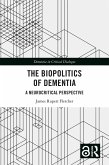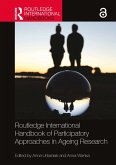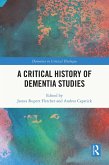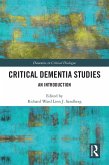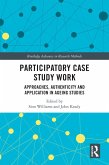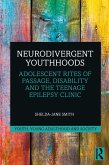A ground-breaking book, Social Research Methods in Dementia Studies shows researchers how to adapt their methods of data collection to address the individual needs of someone who is living with dementia. With an editorial team that includes Ann Johnson, a trained nurse and person living with dementia, this enlightening volume mainly draws its contents from two interdisciplinary social research teams in dementia, namely the Center for Dementia Research [CEDER] at Linköping University in Norrköping, Sweden and the Dementia and Ageing Research Team [DART] at The University of Manchester in Manchester, UK. Case examples are shared in each of the main chapters to help ground the social research method(s) in a real-life context and provide direction as to how learning can be applied to other settings. Chapters also contain key references and recommended reading.
This volume will appeal to undergraduate and postgraduate students, as well as postdoctoral researchers, interested in fields such as: Research Methods, Qualitative Methods and Dementia Studies.
Dieser Download kann aus rechtlichen Gründen nur mit Rechnungsadresse in A, B, BG, CY, CZ, D, DK, EW, E, FIN, F, GR, HR, H, IRL, I, LT, L, LR, M, NL, PL, P, R, S, SLO, SK ausgeliefert werden.
Alison Phinney, Professor, School of Nursing, University of British Columbia, Vancouver, Canada
The innovative methods of investigation, critical discussion and application thereof, presented in this book enhance our understanding of the inner and social lives of people with dementia and their care partners far more deeply than could any randomised controlled trial. By entering their worlds and learning from people diagnosed while supporting the dignity of everyone involved, the contributors take a wonderfully courageous but necessary step that improves the epistemology of dementia and the lives of those diagnosed.
Steven R. Sabat, Professor Emeritus of Psychology, Georgetown University, Washington, USA
This book heralds a new era in social science research. The compiled papers position people with dementia in their relational context from a range of viewpoints. They also articulate new and innovative approaches to research that challenge convention and drive a desire to better understand the authentic lived experience of people with dementia in their own environments. It is a must read for social scientists working in dementia research.
Andrew Robinson, Professor of Aged Care Nursing, Co-Director, Wicking Dementia Research and Education Centre, University of Tasmania, Australia
We have had to wait a long time for a new book about social research met



